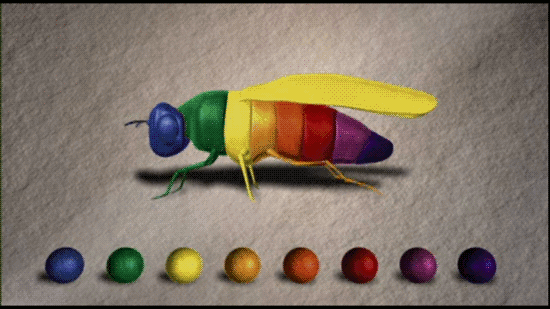Biochemistry Volunteers
The Shared Roots of Pain
In biology, homology refers to the similarity of characteristics, such as genes or anatomical structures, that are shared by different organisms as a result of their common evolutionary ancestry. Genetic homology can have "deep" roots, common across the tree of life. For example, HOX genes act as master switches controlling the layout of body plans in animals as diverse as flies and guys.


Genetic conservation is not restricted to coding for simple features like overall body layouts. Indeed, what seem like highly complex traits, such as the wide array of eyes found in nature, all rely on a shared genetic master switch. For example, if a gene controlling the development of eyes in flies is deleted and replaced with the mouse version of this gene, one might wonder if the fly would grow small mouse eyes or look like something out of a Ridley Scott movie. However, despite carrying the mouse master switch, these flies grow a normal pair of compound fly eyes, like those seen in the image below (WT, Drosophila).

As complex as pain and distress are, many genes essential for pain behavior have remained remarkably conserved between humans and other animals. Even in cases where the genetic code has changed significantly, the expression of that code results in the same amino acid sequences and proteins with the same essential function.

“The ability of an organism to sense and respond to noxious [stimuli]... are not unique to higher organisms but also exist in lower organisms… recent studies have shown that essential genetic components associated with multiple nociception processes are conserved.”
(Khuong and Neely, 2014)
Experiments have shown that when mutant genetic sequences from pain-insensitive humans are inserted into mouse and fly genomes, they show behavioral signs consistent with what is observed in humans. This is not to say that other animals definitively have the same subjective experiences of pain or suffering, but given that these genetic changes are coupled with similar behavioral results, the assumption that they do is not entirely unfounded.
